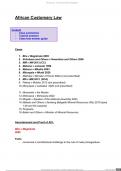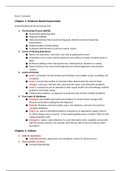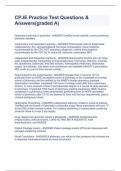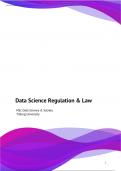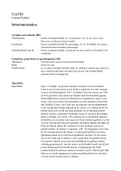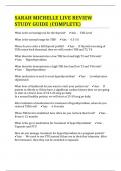Summary
Summary ACL: cases, tutorial answers and test guide
- Course
- Institution
- received 81% for the course, primarily studying from these notes - these notes provide all cases - answers from 4 tutorials - and an answer guide/script for the class test
[Show more]
